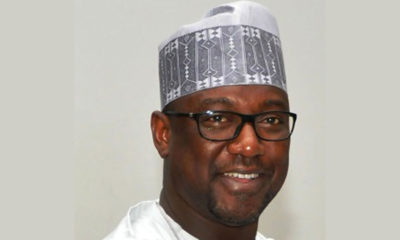- Minna Gridlock Blamed on Extortion by VIOs
Investigation has revealed that the gridlock being experienced by commuters and motorists in Minna, the Niger State capital, is often caused by Vehicle Inspection Officers, who truck drivers have accused of extortion.
Road users coming from Bida-Kpakungu through the Shiroro Road junction to the City Gate via Chanchaga and Tunga are the most affected by the gridlock.
It was learnt that some truck drivers were arrested by the VIOs for offences relating to either incomplete documents or expired papers at the Shiroro traffic junction, with the officials allegedly demanding N10,000 from the drivers as a precondition for setting them free.
Northern City News gathered on Sunday that the demand did not go down well with the drivers, who called the attention of their colleagues to it.
Several truck drivers, who were miffed by what they alleged was a series of extortion tactics by the vehicle inspection officers, used their vehicles to block the road, thus causing a major gridlock lasting several hours.
It took the intervention of a combined team of security officials to bring the matter under control.
An eyewitness, who gave his name as David Yusuf, said, “I was at the scene of the incident and I saw the VIO men trying to extort money from the truck drivers; they told them (drivers) to go and get between N5,000 and N10,000 before their vehicle documents would be released.
“When the situation got tensed, they (VIOs) took to their heels to save their lives as hoodlums began to gather.”
One of the truck drivers, who spoke on condition of anonymity for fear of retribution said, “Our vehicles, numbering over 50, along with others will only be removed from the blocked routes when our documents are released.”
However, the Niger State Director of the VIO, Umar Kuki, dismissed allegations of extortion levelled against his men.
He said, “Two drivers were arrested by my men as part of the enforcement of the law banning the movement of articulated vehicles in designated areas; in the process, their vehicle documents were seized.”

 Forex3 weeks ago
Forex3 weeks ago


 Naira2 weeks ago
Naira2 weeks ago
 Billionaire Watch2 weeks ago
Billionaire Watch2 weeks ago




 Naira2 weeks ago
Naira2 weeks ago




 Naira2 weeks ago
Naira2 weeks ago




 Naira1 week ago
Naira1 week ago




 Naira4 weeks ago
Naira4 weeks ago




 Naira3 weeks ago
Naira3 weeks ago












